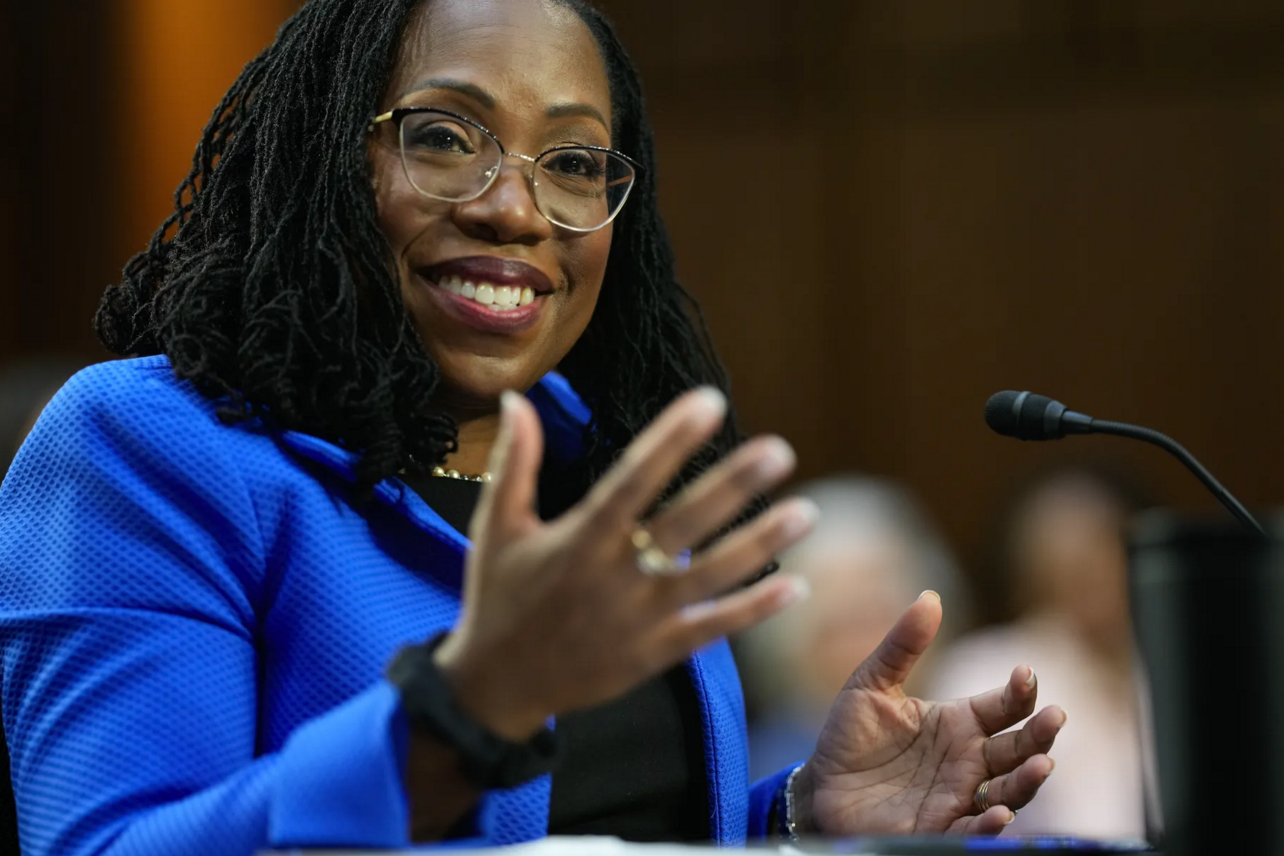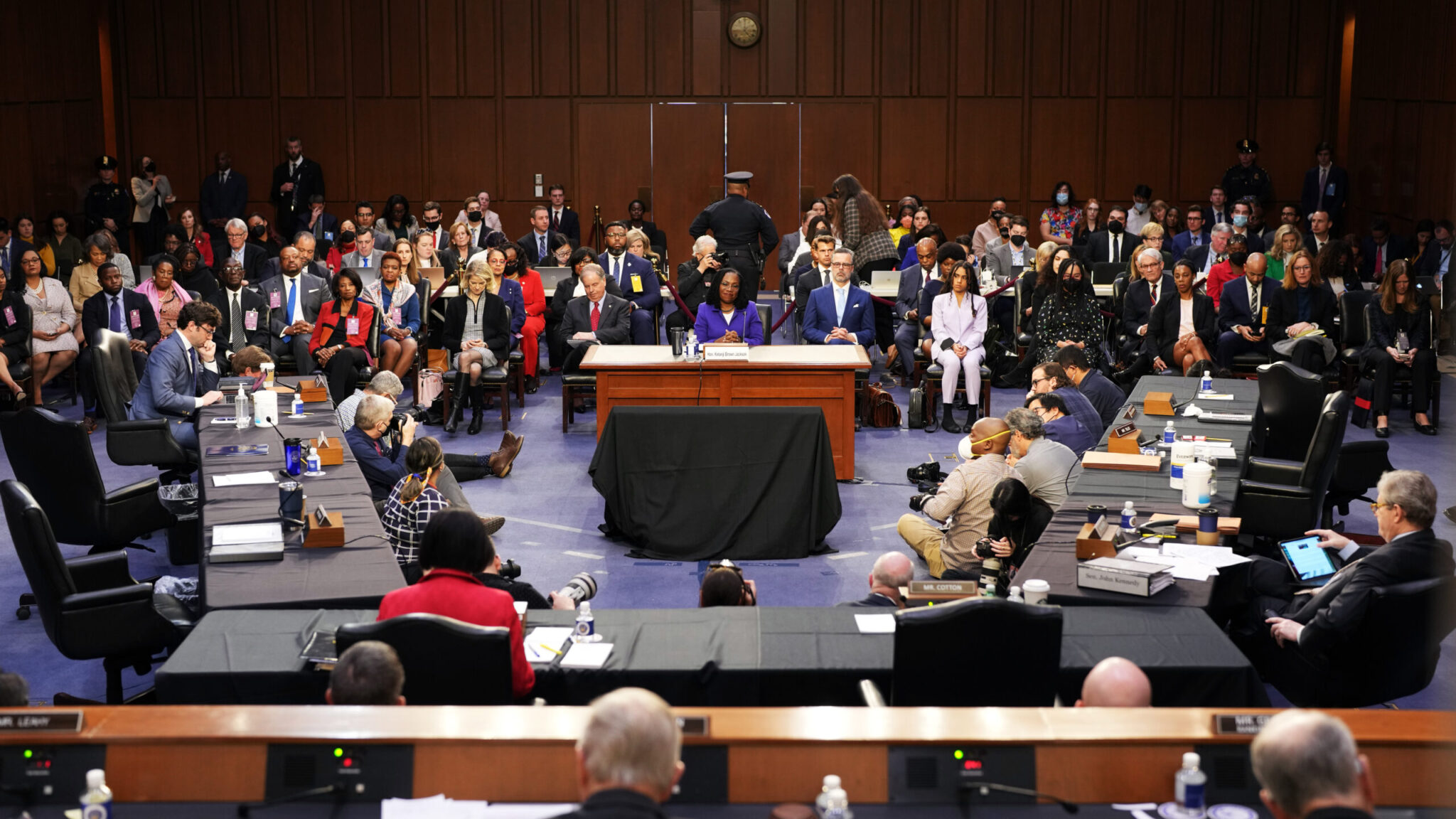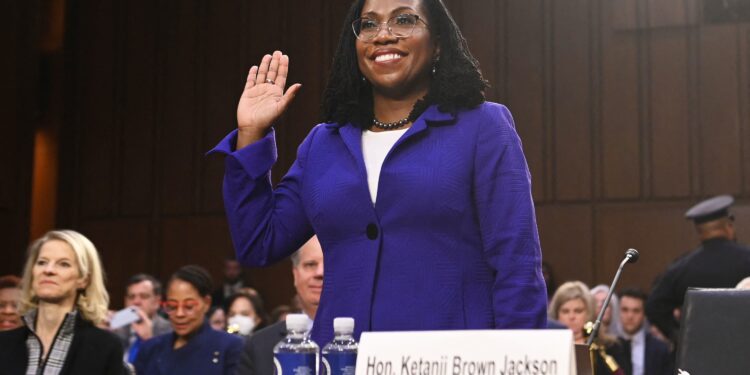Wrapping up hearings on Judge Ketanji Brown Jackson’s nomination to the U.S. Supreme Court, I am left repeating the words of Sen. Cory Booker (D – New Jersey), “This is not a normal day in America.”
Never in our nation’s history has an eminently qualified Black woman stood before this nation’s legislative body to be evaluated for her fitness to serve on this nation’s highest court.
We must recognize and celebrate this important achievement. She will likely be confirmed by a margin more narrow than her confirmation to the D.C. Circuit Court of Appeals (53 to 44). At concern is not her confirmation (hopefully).
Like many recent Supreme Court confirmation hearings, Jackson’s moment to discuss her qualifications is just open theater for politicians and presidential hopefuls.
Historic firsts gave us more to look for, though. Undoubtedly more young Black women will be inspired to pursue the law. In her words, Jackson stated her parents were public school teachers and that to “express both pride in their heritage and hope for the future, they gave me an African name: Ketanji Onyika, which they were told means ‘lovely one’.”
Also, on display, was the roadmap for the culture wars Republicans seek to leverage to electoral victory. The rhetoric indicated a strong belief that Roe’s days are numbered Dobbs v. Jackson Women’s Health Organization. In oral arguments, the Court’s 6-3 conservative majority “signaled it could uphold Mississippi’s 15-week abortion ban during oral arguments in that case in December,” according to Newsweek, which also indicated some “41 states have introduced bills to restrict abortion this year.”
The shift away from Roe as a focus during the confirmation hearing was most evident in a new wave of attacks on the Supreme Court’s decision in Obergefell v. Hodges (2015) (requiring states to issue marriage licenses to same-sex couples on the same basis as others).
Rather than outright attack marriage equality or LGBTQIA+ identities, the subtler fight was over the Supreme Court precedent of substantive due process analysis.

Substantive Due Process
Substantive due process recognizes that Fourteenth Amendment protections are not just procedural rights (e.g., an unbiased tribunal, notice of action, right to present evidence, be represented by counsel in criminal cases).
The Constitution protects against deprivations of liberty or property without due process. A deprivation of liberty may occur if a person loses a significant freedom of action or is denied a freedom provided by statute.
The root of substantive due process analysis of civil liberties is often cited as Meyer v. Nebraska (1923). There, the court struck down a Nebraska law banning foreign language education (context: anti-German sentiment during World War I).
In the Court’s decision, Justice McReynolds underscored that liberty “without doubt” included liberty “to contract, to engage in any of the common occupations of life, to acquire useful knowledge, to marry, establish a home and bring up children, to worship God according to the dictates of his own conscience, and generally to enjoy those privileges long recognized at common law as essential to the orderly pursuit of happiness.”Two years later, McReynolds again wrote the Court’s opinion in Pierce v. Society of Sisters (1925) (striking down an Oregon law requiring all children to attend public school on the ground of recognized personal civil liberties).
These precedents were relied on in the analysis of Roe v. Wade (1973) and Lawrence v. Texas (striking down Texas’ anti-sodomy laws and that was only 19 years ago in 2003) and in Obergefell.

Teeing Up the Next Fight
Early on the second day of Jackson’s historic nomination process, Sen. John Cornyn (R – Texas) attacked the Supreme Court’s Obergefell decision. He noted that 32 of 35 states which voted on marriage equality actually voted to ban rights from same-sex couples and dismissed the Court ruling as “judicial policymaking.”
In fact, during the confirmation hearing both Cornyn and Marsha Blackburn (R- Tennessee) lectured Jackson on the Constitution explicitly not mentioning the words abortion or marriage. Blackburn went on to question Jackson on the definition of “woman”, which Jackson smartly deflected by emphasizing that she was “not a biologist.”
Later, Sen. John Kennedy (R – Louisiana) complained about the lack of a formula to identify unenumerated rights protected under substantive due process, indicating that some would have to say, “Wait a minute.” I think he thinks that’s legal analysis. And then there’s Sen. Ben Sasse (R – Nebraska) who I just can’t with so we’re going to skip him, but suffice to say he tried it too, folks.This theatre, which does little to determine Jackson’s character and fit to serve on the Supreme Court, does show us the roadmap for the fights ahead.
It might be cliché to say we live in unprecedented times, but it’s true, nonetheless. We can’t rest on the victories our communities have fought for and think our only path is forward. Often progress is met with setback and pushbacks. Things we thought were impossible losses of freedom and liberty seem more likely with the rise of fascism in America.
I’m reminded of the words of author and journalist Frank Thayer who said, “Each generation must win democracy for itself.”









